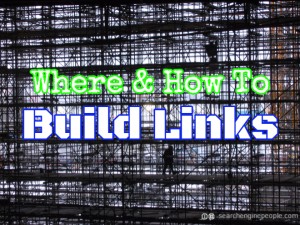In this day and age, new SDR onboarding should be an old hat. Whether you’ve chosen to automate the process, use a mentorship system, or just have defined a series of killer training sessions (augmented with a resource library, of course), you should be working with a tried and true process that’s provided demonstrable gain to your sales organization.
If you’re not, stop reading. You need this instead.
For those of you that do have a defined process, congrats. I’m sure it’s great. I’m also sure, though, that you occasionally (or always) run into the problems of innovation and productivity in new hires. Yes, they understand the processes, they’re “up and running,” and maybe they even have one on the board, but until they’ve really internalized your system – until it’s become part of the way that they think about selling in general – it’s little more than boxes to be checked.
Which, sure, fine. If you’re only focused on the black and white of “sale/no sale,” checking boxes is great. But if you believe that a new sales hire is something more than a human voice enacting your sales machine – if you believe that each time someone new is hired, it’s important to get them not just thinking your system but living and innovating it – there’s a good chance you need to make a few tweaks.
But, you’re probably asking yourself, why change anything at all? We hire salespeople to sell, and by following our process, they do. The reason is this: your sales org process is never perfect, can always use tweaks, and without people plugged into it and innovating from the beginning, you’ll never ever perform as well as you could.
So let me ask you: can your business afford to wait an extra three months (on average) for new sales hires to start positively contributing to the future of your organization?
Didn’t think so.
The Hard Truth About SDR Onboarding & Sales Culture
Sales, for better or worse, tends to have a more rigidly traditional/conservative structure than other departments, making it difficult for new reps to experiment with any sort of substantive change to the sales process. Because the strategy is typically articulated by the Head of Sales and delivered downwards through management and sales execs, much of the first 90 days are spent understanding and navigating the existing hierarchy.
This is a problem. Imagine, for example, if those 90 days were spent on something way more productive: like learning the ins and outs of your sales process and applying previous experiences to make optimization suggestions or on developing new sales stories in line with both your organization’s theses and your new hire’s expertise? What if walking into a new sales org wasn’t like a kid switching schools and, instead, was like welcoming a new, experienced professional into a place where they’re supported to create an impact larger than the narrow role they’ve been assigned?
Building Productivity Into New Rep Onboarding
What you need to do to make your new rep onboarding more productive is pretty straightforward (and, in some ways, highly customizable). Ensure that all new hires feel (and are seen as) capable adults. Adults, as you know, come with knowledge and experience and navigate the world by internalizing and improving systems based on that very knowledge and experience. And in introducing them to a new system (like your sales process), one of two things will happen: they’ll either gel with your foundation, or there will be a tension. If there’s a tension, there’s a possibility that your process could be improved or isn’t as effective and productive as it could be. Or, they’re not a good fit. Either way, you win.
It’s way past time to get rid of the “new man on the totem pole” mentality that privileges tenure over innovation. All it does is reinforce mediocrity, conformity, and the kind of bureaucracy that birthed the productivity movement in the first place. Plus, it’s expensive. Rather than jumping to selling/tweaking the sales process, reps waste countless hours asserting and reasserting themselves, navigating office politics, etc.
Now don’t get me wrong: I’m certainly not advocating for a “level” office of all equals. But what I am saying is that, if you’re interested in building productivity into new rep onboarding, it’s not a handful of tools or a “new system” that’s going to do it. What will make it happen is a welcoming culture that respects and encourages experience and exploration, one that embraces change.
Business & Finance Articles on Business 2 Community(55)
Report Post






